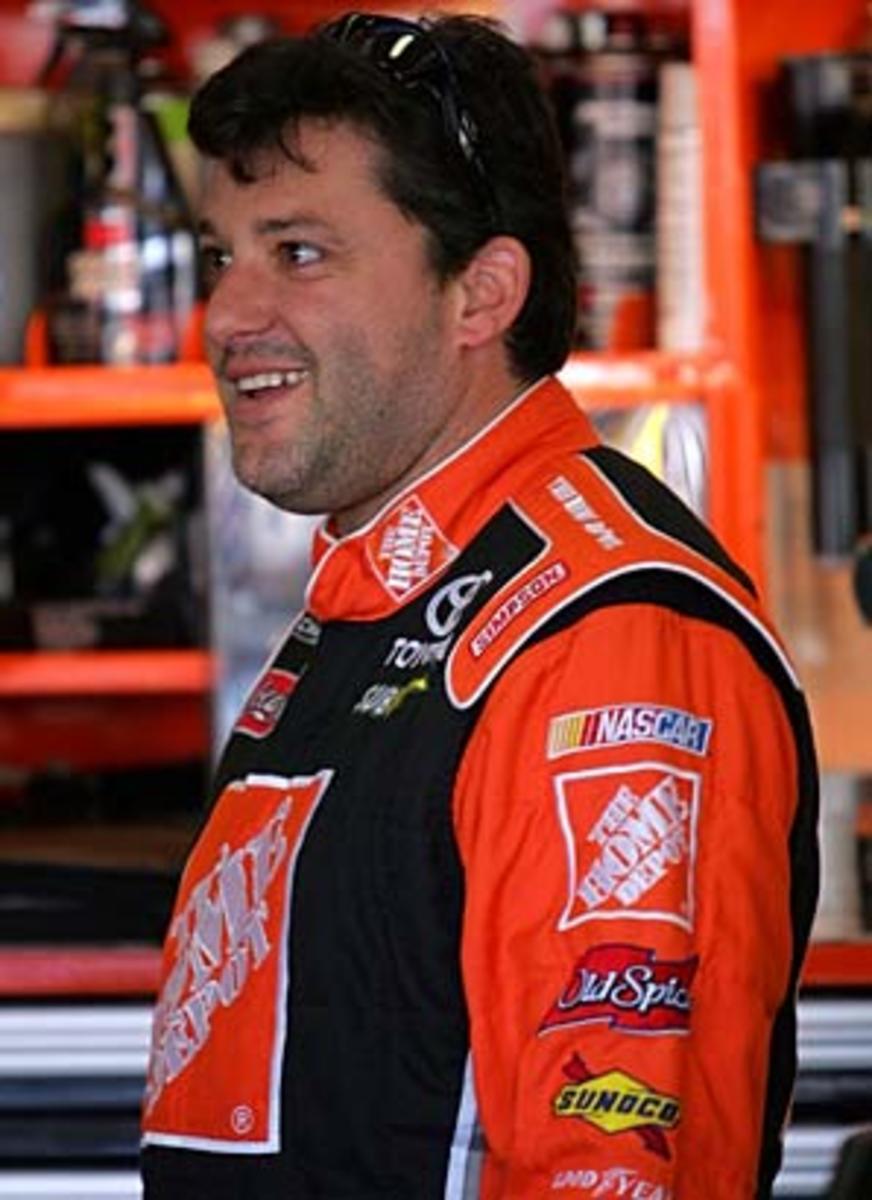Introducing NASCAR's electoral college
Matt Kenseth won the 2003 Sprint Cup championship by reaching victory lane just once but amassing 25 top-10s in 36 races. It was a feat of consistency that was lambasted as boring, thus the system used to determine NASCAR's top-series champion was changed the next season.
Five years into the 10-race, 12-driver Chase for the Championship, two-time defending series champion Jimmie Johnson takes the biggest margin a points leader has ever had under the current system -- 106 points -- into the final two events of the season. There have been the typical rumblings again that the system should be adjusted because of the excellence of one driver. Absurd.
But in keeping with the spirit of NASCAR's interminable need to tweak, and the landmark presidential election of Tuesday night, here's a suggestion for a new way to determine the Sprint Cup champion, at least every four years. The series has certainly employed almost as odd methods to award points in the past.
The NASCAR Electoral College: Drivers who win a Sprint Cup race in a given state are eligible to carry that state's electoral votes, which are applied to their point total if they win the state. Because multiple races are held in 14 of 19 states NASCAR's top series visits, the state is awarded to a driver with the most wins there in a season, and ties are otherwise broken by leading the most laps in victory. Drivers missed out on the electoral powerhouse of Ohio (20 votes) because no Sprint Cup race is held there. Cleveland rocks, but it doesn't race.
Applying the electoral college to Sprint Cup, even with two races remaining ... Johnson leads again, but Kyle Busch's early ground game in Florida (he won the Coke Zero 400 at Daytona International Speedway) could yield 27 votes in the season finale and launch another Busch Administration.
The presence of 12 separate "parties" assures no driver will reach the presidential lockdown number of 270.
Jimmie Johnson (95 electoral votes): Soaked up more than half of his votes in California (55 at Fontana), but turned Virginia from red to Lowe's blue with wins at Richmond and Martinsville.
Kyle Busch (78): A big-state force, he gobbled up New York, Illinois and Georgia. He leads in Florida, meaning he could add 27 more votes to vault past Johnson.
Carl Edwards, third-party candidate (67): This Edwards was able to last until the end of this race but Texas (34) accounts for most of his votes. Apparently being a flip-flopper doesn't matter anymore.
Minor party candidates: Kasey Kahne (36), Tony Stewart (9), Greg Biffle (4).
Jeff Burton: The veteran Sprint Cup driver and resident sage of the garage has long been seen as a possible future governor of his home state of Virginia, or at least an aspirant of some political office. He'd have to tone down the color scheme on his work suits.
Bill Lester: A Cal-Berkeley-trained electrical engineer and computer scientist who began racing as a hobby and competed in the truck and Cup series (two races), he's broken racial barriers and is generally one of the smartest, most engaging persons in the room. In 2006 he became the first African-American to qualify for a Sprint Cup race in 20 years.
Sterling Marlin: Not imagining a New Deal or Great Society germinating on the cluttered desk of the senator from Tennessee, but he could probably pull off Charlie Wilson, the former Texas Congressman who supposedly won the Cold War and got a movie starring Tom Hanks.
Bill Elliott: The semi-retired former champion has been seen chatting up political types before races and he could probably muster enough votes to attain higher office in Georgia.
Kyle Petty: His father, Richard, unsuccessfully ran for secretary of state of North Carolina in the mid-90s, but what the son lacks in racing resume to his famous father, he makes up for with charisma and the ability to communicate to diverse groups. Don't know how well the ponytail would poll, though.






